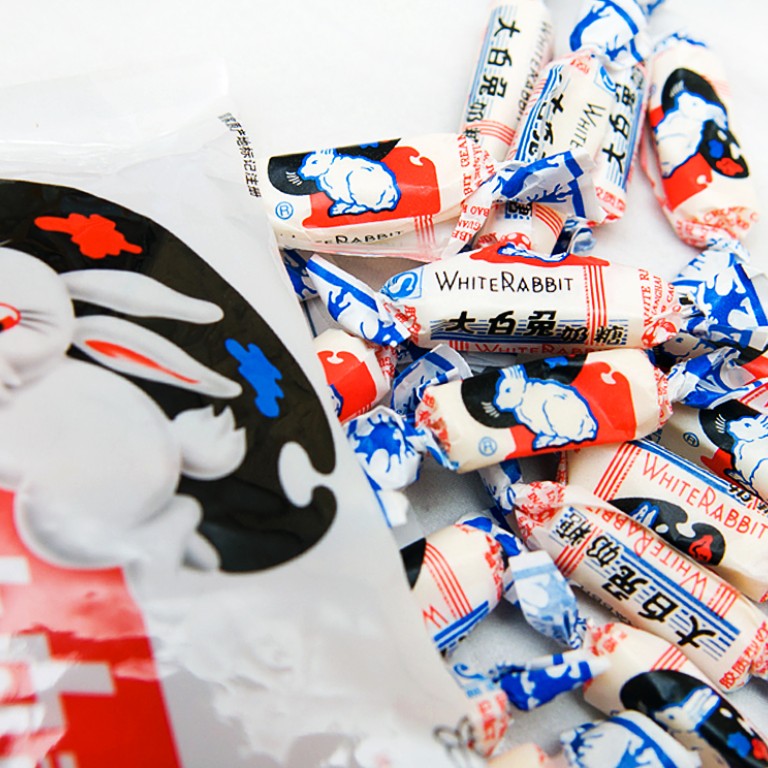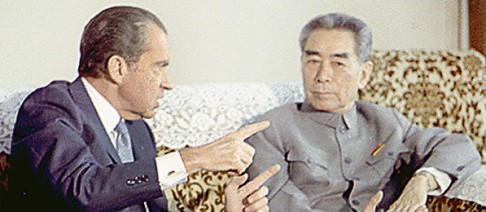
Sweet success? Chinese food giant hopes candies are magic ingredient in global plans
In 1972, Zhou Enlai gave them to Richard Nixon as a gift: now Bright Food hopes the sweets will help growth plans as China becomes world's top food import market
The return of China’s White Rabbit creamy vanilla sweets to the global stage could be a sign of things to come.
In 1972, then-premier Zhou Enlai presented the iconic sweets, made from whole milk powder, to visiting US president Richard Nixon.Now officials from Shanghai are giving out the sweets to visitors at a trade show in Milan.
Yet the state-owned food group, Bright Food, which owns the brand – as if to emphasise its international footprint – has tweaked the ingredients of the original White Rabbit sweets by making them with milk powder produced by New Zealand dairy companies.
Bright Food is very much a global player, and has big plans for the future – both on the mainland and abroad.
State-owned Jiefang Daily reported that the US’ Association of Food Industries predicted the size of the imported food market in China would exceed 480 billion yuan (HK$608 billion) in 2018; by then the country would be the world’s largest importer of food products.

But this demand has – so far – not led to soaring profits for Bright Food and other mainland food companies.
So Bright Food hopes that – after years of bringing quality foreign food to the fast-growing domestic market – a slight change to its business structure will prove the recipe for greater success.
“The huge demand doesn’t necessarily translate into big profits,” Bright Food spokesman Pan Jianjun said.
“Competition is fierce as consumers have plenty of choices. To win a bigger market share, our company needs to fine-tune our supply chain to make our products competitively priced.”
The mainland’s second-largest food group, which owns a number of foreign food companies, has seen sales of its imported food products soar thanks to its globalisation efforts.
Last year’s introduction of fresh Australian oranges produced by Manassen Foods – a company Bright Food acquired in 2011 – generated impressive sales in China of more than 100 million yuan within a few months – much more than it had expected, Pan said.
“It’s obvious that there is huge demand because wealthy Chinese people love imported food products,” he said. “What we want to focus on is to better manage our business to beat our rivals.”
Pan said the appearance of the White Rabbit sweets in Milan was just the first step in its plans to establish its mainland brands around the world.
Bright Food has led the way among mainland companies with its global focus. Introducing mainland brands abroad is just part of its vision of creating a global platform.
The company has used foreign acquisitions to establish an international business platform that provides a “two-way” route for its many products; its foreign-made items can serve the vast mainland food market, while its Chinese brands can be readily exported abroad.
So far it has secured five other foreign acquisitions apart from Manassen. These include British cereal maker Weetabix – whose breakfast biscuits are now hugely popular among rich Shanghainese – and Israel’s Tnuva Food Industries.
Bright Food – which boasts former president Jiang Zemin among its former employees (he briefly worked at one of its ice-cream subsidiaries in the 1950s) – is also edging closer to acquiring a European food distributor.
Bright Food vice-president Ge Junjie said the company hoped such an acquisition would bolster its ambitions to become a global food giant.
An increasing number of companies are battling in China’s imported food market. Apart from food giants like Bright Food, which have a complete chain of businesses that can directly bring in products from its overseas subsidiaries to its own retail outlets, there are specialised stores selling imported foods, retail chain operators and online shops.
Teacher Zuo Zhengying is one big spender on imported food who turns to online shops to save on cost. “Those on the shelves in hypermarkets are normally expensive,” Zuo said.
Two popular internet channels have emerged to cater to customers like Zuo: Haitao, a cross-border online shop for mainland consumers, and daigou agents, overseas personal shoppers who buy and arrange deliveris to mainland customers. Health supplements bought through daigou agencies or haitao platforms can be up to 40 per cent cheaper than those available in traditional supermarkets.
However, Ge said Bright Food was unfazed.
“Our ultimate goal is to create a global business network that will make foreign-made products affordable to Chinese people,” he said. “There’s a lot of scope for us to cut down on costs in areas such as production, logistics, distribution and marketing.”

